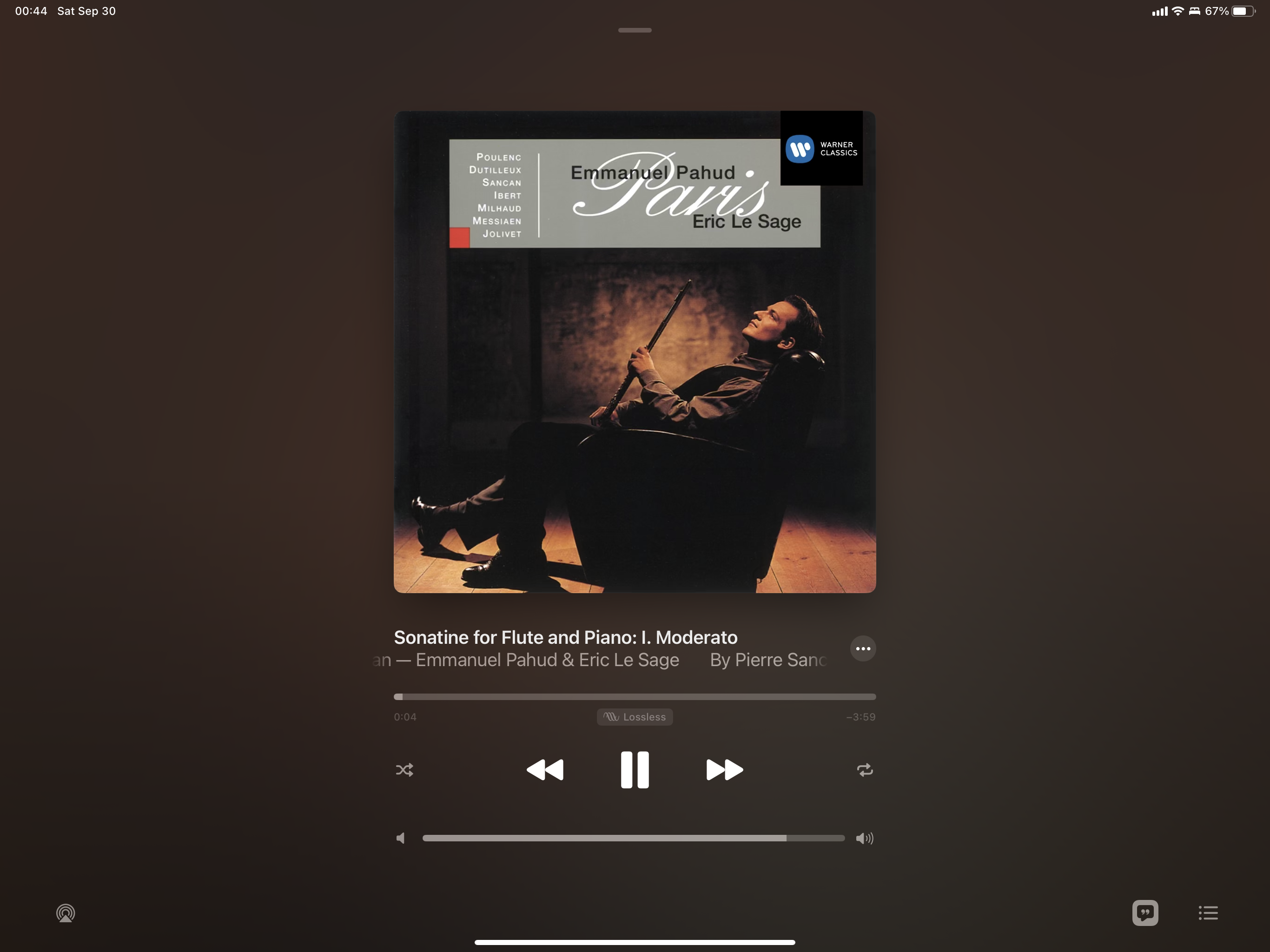Happy Mid-Autumn Festival! I’m reminiscing about all the people I’ve met throughout my life. So, here’s another conversation series. It happened years ago during one of my flute lessons with my teacher:
(Practicing one of Pierre Sancan’s sonatines)
Me: These modern French pieces are literally weird.
Mr. Chou: No they’re fine. The one I chose for you is already one of the best from that era’s works. You should go and listen to some other modern composers, and you’ll realize how wonderful this music can be (compared to them).
Me: So, when you were in Paris, did you explore all of them, the good the bad and the worst ones?
Him: Yes, that’s part of the journey. When you’re trained as a professional musician, you learn both the classics and the contemporary music. We even have specific exams for, like, studying and performing novel pieces—freshly composed by some unknown names, they’re all brilliantly crazy creative minds. Since they’re new, there’s often no established interpretation, so we must personally decipher and make sense of the artistic interpretation.
Me: Even though most of them can be terrible? I don’t get it. In terms of efficiency of studying or even for enjoyment, you could have just focused on the best classical pieces by Beethoven or Mozart that have stood the test of time. Why bother with those modern compositions where nine out of ten are, well, terrible?
Him: But one out of those ten attempts, or sometimes even one out of hundreds or thousands of those experimental pieces, can be revolutionary and become the classic piece after decades or centuries. Beethoven was also an innovator for his time. Probably people of his era thought his music was rebellious and maybe even bad. That’s how it works. You might only see the perfectly selected pieces that have endured, out of countless failed attempts. But that’s why they’re called classics.
Me: So, should I be grateful for having the opportunity to hear and practice these completely eccentric and unconventional compositions because we’re on the cutting edge of, the next generation of music?
Him: Nope…as I mentioned earlier, I’ve already chosen the best ones for you. Plus, 20th-century French composers are hardly considered contemporary. Now that you’re interested, I’ll introduce you to another post-modern composer next week, and you’ll be amazed by the real experimentation.
And I was like NOOOOOOOOOOO I’d rather do another Bach. And he hoped I can be amazed by it? It was more of utterly perplexed and shocked back then.
As it turns out, it takes time, well, actually years, to build up a lot more maturity and experience so as to fully grasp the delicacy, depth, and beauty of those music.
